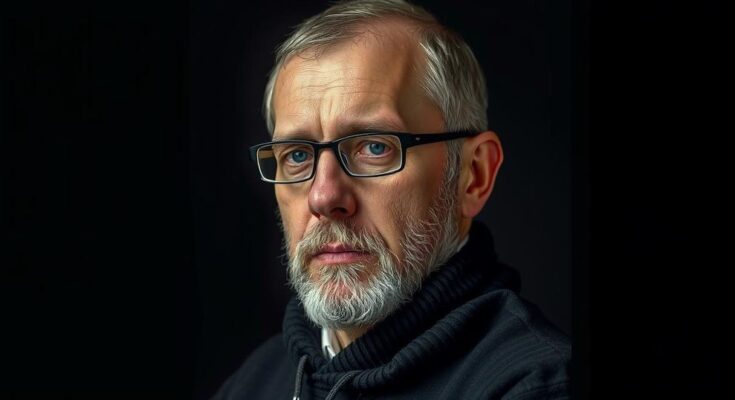Amnesty International has designated Grigory Melkonyants, co-chair of the Russian election watchdog Golos, as a prisoner of conscience amidst his trial for alleged involvement with an ‘undesirable organization’. Arrested ahead of crucial elections, he faces politically motivated charges and legal violations. The case amplifies concerns over Russia’s escalating repression of civil society and the dangers activists face today.
In a striking display of political repression, Grigory Melkonyants, the co-chair of Russia’s election watchdog Golos, has been officially deemed a “prisoner of conscience” by Amnesty International. His detention, which began on August 17, 2023, just before crucial elections, highlights the mounting pressure on civil society activists in Russia. Melkonyants faces charges alleging he orchestrated activities for an “undesirable organization,” potentially leading to a six-year prison sentence, a brutal twist aimed at silencing advocates for electoral integrity amid a suffocating political atmosphere. For over a year, Melkonyants has remained imprisoned, his legal proceedings marred by significant violations of his right to a fair trial, with multiple extensions to his detention that exceed legal limits. The Golos movement, under his leadership, has become synonymous with the fight against election fraud, yet the Russian government has branded it as connected to foreign entities, thereby justifying their efforts to dismantle its influence. Denis Krivosheev, Amnesty’s Deputy Director, fiercely condemns these actions, calling them a gross disrespect for justice and urging for Melkonyants’ immediate release. The backdrop to this harsh reality is the strategic clampdown on civil society organizations and independent media since the onset of the war in Ukraine in 2022, marking a pivotal moment of increased governmental scrutiny and crackdown on dissenters. The 2015 “undesirable organizations” law serves as a weapon against entities deemed a threat to national security, with no successful legal challenges reported against such designations. Melkonyants’ case encapsulates this chilling trend of fear and suppression, signaling a dire need for calls to action against the continued erosion of human rights in Russia.
The case of Grigory Melkonyants ties back to the long-standing challenges facing civic organizations in Russia. Established in 2013, the Golos Association previously operated under a cloud of accusations of being a foreign agent, a label that severely undermined its capabilities. Following severe governmental restrictions and persistent threats, the organization reformed into the Golos Movement to continue its mission without formal registration. This evolution comes as an ironic testament to the resilience of civil society in Russia, juxtaposed against the authorities’ relentless attempts to stifle electoral transparency and civic engagement under the pretense of national security.
The ongoing saga of Grigory Melkonyants underscores the perilous landscape for activists championing democratic values in Russia. Amnesty International’s designation of him as a prisoner of conscience is both a clarion call and a poignant reminder of the broader assault on human rights and civil liberties. The demand for his release and the urgent need to dismantle oppressive laws against civil society stand as critical steps towards restoring justice in a fractured political climate.
Original Source: www.amnesty.org



